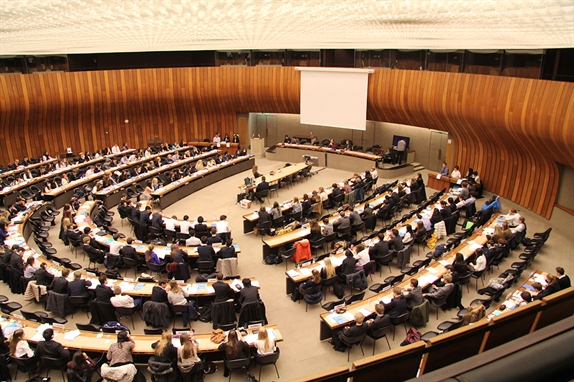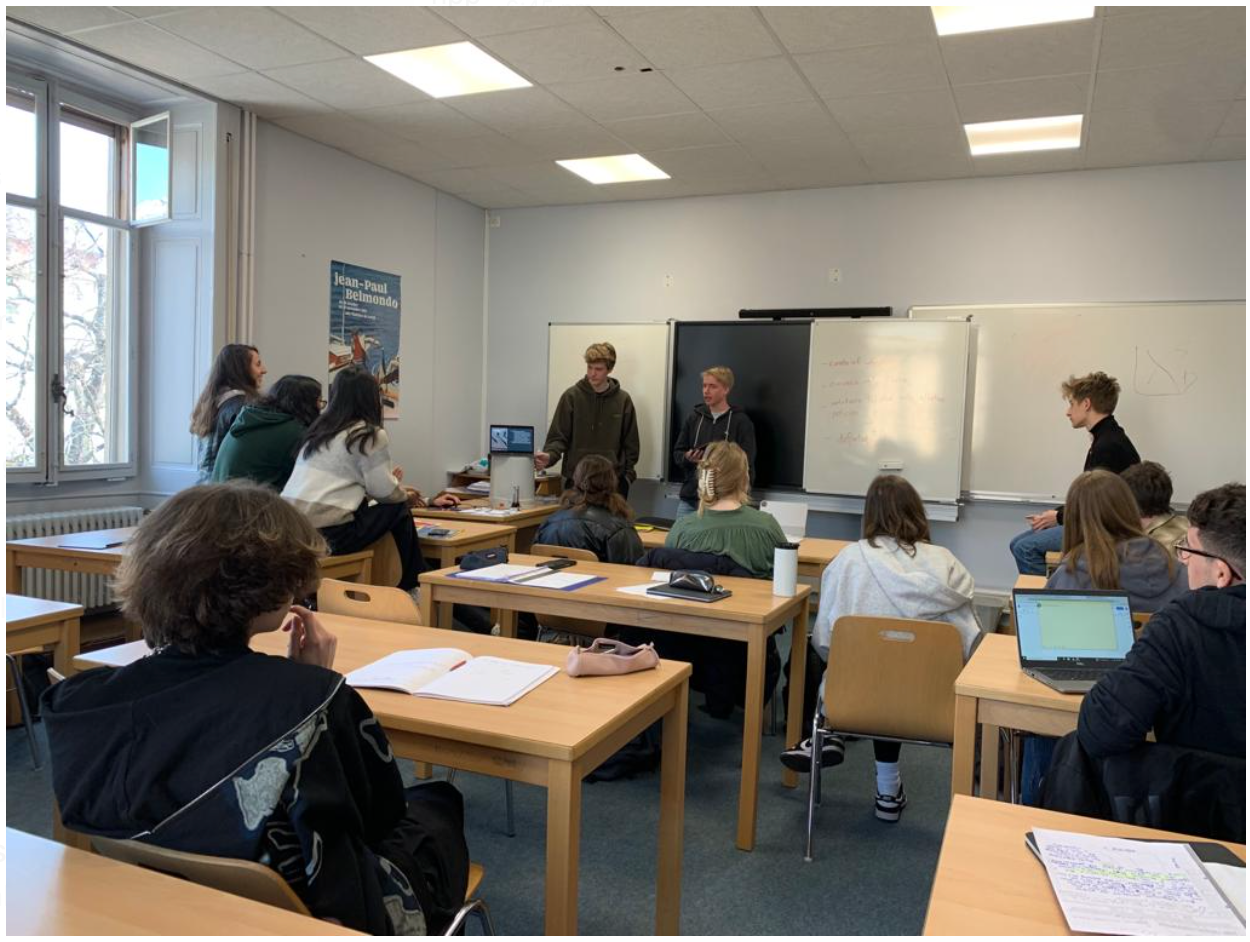By Agostino Messana, Year 11
The Students’ League of Nations is a simulation of the United Nations’ General Assembly involving secondary school students aged 15-20, from over 100 countries. It is the direct evolution of the Students’ United Nations, which was established in 1953 by the International School of Geneva. It aims to educate young people about how UN resolutions are passed while they discuss issues of worldwide importance. It also provides them with a great opportunity to simulate the operations of the United Nations Organisation.
The SLN takes place in the UN headquarters in a big circular meeting room, in which all the participating countries are disposed. The chairman, after inviting the delegates from the participating countries, messengers, journalists and all other people present to take their seats, gives a brief introductory speech, pointing out the SLN rules and code of conduct. Then, the delegation in question presents its resolution to the other nations and shares what, in their opinion, should be done to resolve the problem. (Each country that participates has to write a resolution before the SLN. Of these, four are then chosen to discuss and vote on during the sessions). Directly after this speech, the chairman picks some countries that have questions on the matter (these are called points of information) and the delegation responds to them. Next, the actual debate starts and the messengers (Year 10 students whose roles are to read messages sent from one country to another and verify their relevance) are released from their seats.The messengers deliver messages between the different delegations so the countries can try to influence votes and form coalitions. From now on, there is a list of countries who have the right to speak and the delegation whose resolution is under consideration can respond in person or by message.
On each of the two days of the SLN, one speaker is invited to talk about some problems in our current world. The speaker on the second day was Dr. Anthony Daniels, a well-known British physician, psychiatrist, essayist and author. Dr. Daniels spoke about the importance of freedom of speech, bullying and transexuality. He criticised the way bullying is dealt with, asserting that in order for an act to be considered bullying, it is sufficient for the victim to claim he has been bullied. Later on, we interviewed Dr. Daniels asking him what he thought of the SLN. His answer was that, though he had seen too little of SLN to form a clear opinion, an improvement could be for SLN to be organised into smaller groups of people so that delegates could have the chance to express themselves more easily.
The SLN is not only a simulation of what a UN meeting looks like, it is also a lesson of how to behave in a conference, respecting others while they speak and addressing others correctly. The Director General of the International School of Geneva, Dr. David Hawley expanded on this concept when we interviewed him. To the question Why is the SLN important?, he gave the following answers: Firstly, he explained that our school and the UN are strongly interconnected as various officials of the League of Nations founded our school in order to provide children with an international education for peace. Dr. Hawley then clarified that the skills developed during the SLN (such as being patient, addressing formally another delegation etc.) will be needed in school and on our future journey. Lastly, he reminded us that the challenges set throughout the SLN are a larger representation of the challenges and boundaries we encounter in daily life and therefore a great simulation of what we can expect when facing the outside world.



